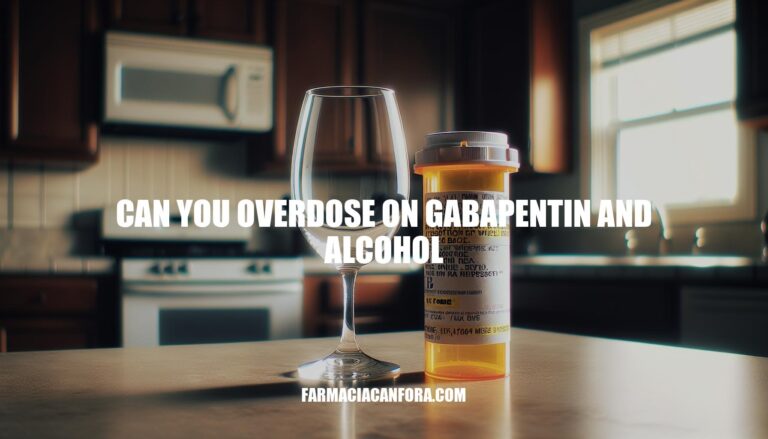


Combining gabapentin and alcohol is highly dangerous. Both substances are depressants, and their combined effects can lead to severe health risks, including respiratory depression, extreme drowsiness, and impaired motor functions. The most critical danger is the increased risk of overdose, which can be life-threatening. Always consult a healthcare provider before mixing medications with alcohol.
Gabapentin and alcohol both depress the central nervous system (CNS). When taken together, they amplify each other’s effects, leading to increased drowsiness, dizziness, and impaired motor skills. This combination can also cause severe respiratory depression, where breathing becomes dangerously slow or stops altogether. The heightened sedation and impaired cognitive functions increase the risk of overdose, which can be life-threatening.
Symptoms of a gabapentin and alcohol overdose include:
Stay safe and consult a healthcare professional if you have concerns.
Seek medical help immediately if you suspect an overdose.
Here are some strategies to prevent overdosing on gabapentin and alcohol:
Avoid Concurrent Use: Do not mix gabapentin with alcohol. Both substances depress the central nervous system, increasing the risk of severe side effects like dizziness, drowsiness, and overdose.
Follow Medical Advice: Always take gabapentin exactly as prescribed by your healthcare provider. Do not adjust the dosage without consulting your doctor.
Medication Management: Keep track of your medication schedule to avoid missing doses or taking extra doses by mistake.
Secure Storage: Store gabapentin in a safe place, out of reach of children and pets, to prevent accidental ingestion.
Education and Awareness: Be aware of the potential risks and side effects of both gabapentin and alcohol. Educate yourself and others about the dangers of mixing these substances.
Regular Monitoring: If you are prescribed gabapentin, regular check-ins with your healthcare provider can help monitor for any adverse effects or potential misuse.
Combining gabapentin and alcohol is highly dangerous due to their depressant effects, which can lead to severe health risks such as respiratory depression, extreme drowsiness, and impaired motor functions. The increased risk of overdose is life-threatening.
Always consult a healthcare provider before mixing medications with alcohol.
To stay safe, avoid concurrent use, follow medical advice, manage medication, secure storage, educate yourself and others, and undergo regular monitoring.